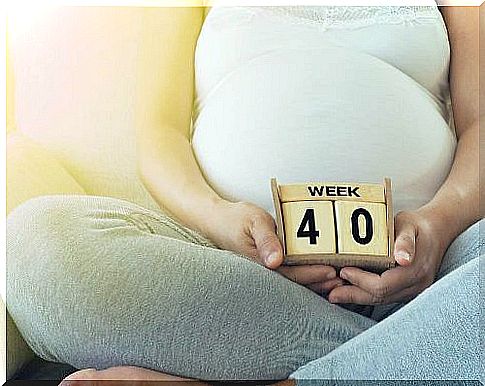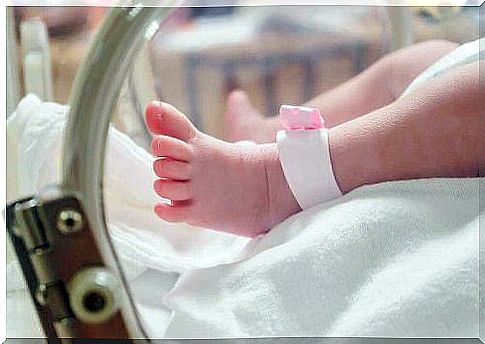Pregnancy After 40 – What Are The Risks Associated With It?

Surely we all know at least one woman in her 40s or older who has just given birth to her first child. And although the chances of getting pregnant at this age are already quite low, it is really important to know the risks of pregnancy after the age of 40 .
Women tend to plan their pregnancies most often between the ages of twenty and thirty. However, due to the requirements related to professional work, economic or personal reasons, the postponement of the date of birth of a child to later years is quite common nowadays.
But did you know that pregnancy after 40 also carries a lot of risk?
Pregnancy after 40 – what are the main risks in this case?
Pregnancy is always a blessing. However, it can be associated with a large number of different types of risks, both for the mother and the child, which should always be kept in mind. Especially if the woman is forty or older.
Higher risk of any kind of genetic abnormality
As women age, their ovaries gradually lose their performance. As a result, they are not able to produce eggs of the same quality as at a young age. It is for this reason that pregnancy after the age of 40 means an increased risk of various kinds of genetic problems in babies. The most common of these cases is Down’s syndrome.

This genetic problem is caused by an abnormality in the cell division process. It begins when the egg and sperm connect. As a result, the embryo gains an extra twenty-third chromosome. Down syndrome, unfortunately, causes, among other things, mental retardation and a serious disease of the heart and circulatory system.
When expectant mothers are under forty years of age, the incidence rate for this type of developmental defect is lower than one in a thousand women. In contrast, for women in their forties, the risk increases to one in five hundred.
The risk of pre-eclampsia
This is typically a medical complication of both high blood pressure and a large amount of protein in the urine. If a pregnant woman has this problem, the first symptoms become apparent after about 20 weeks of pregnancy. Most often, the hands and face of a woman swell.
This situation can damage the nervous system and result in seizures (hence the name of the condition), stroke and other health problems.
Pregnancy after the age of 40 may be at risk from hypertension
High blood pressure in a pregnant woman negatively affects the development of her baby. In most cases, this problem occurs towards the end of the second trimester of pregnancy. If the symptoms seen by a woman recur regularly, this health problem could even result in premature labor.
Risk related to conception and termination of pregnancy
In addition to the risks associated with diseases and abnormalities in the functioning of the body of a pregnant woman, pregnancy after the age of 40 may also be associated with other types of abnormalities. These include, among others:
Infertility or difficulty getting pregnant
Occasionally, infertility can be caused by physical or hormonal problems. In some cases, it can also be influenced by sudden and drastic changes in the preferred lifestyle and typical environmental factors.

However, the most recurring problem is premature ovarian failure. It is a disorder of the woman’s reproductive system, which causes the ovaries to stop working properly before the menopause begins. Another reason for this condition may be polycystic ovary syndrome, which makes it difficult to release mature eggs.
Possible other physiological and disease disorders that may result in infertility include, but are not limited to, tumors in the uterus, endometriosis, and obstruction of the fallopian tubes.
Diabetes in pregnant women
This disease is defined as a metabolic disorder that occurs during pregnancy. Its most serious consequences are urinary tract infections, excessive weight gain and an increased likelihood of premature birth.
Other types of health problems that pregnancy after 40 may be associated with
As mentioned above, gestational diabetes and excessively high blood pressure are much more common in women in their forties. In addition, pregnancy after the age of 40 is also associated with a much higher risk of damaging the placenta.
This means that these women are much more likely to develop abnormalities such as excessive bleeding during (or even before) labor.
Pregnancy after the age of 40 and the risk of childbirth
Even if pregnancy goes smoothly after the age of 40, complications can also arise at the very moment of labor or just before it. The most common disorders of this type include:
Premature birth
Of course, the greatest risk is that the infant will die in this case. However, a baby can also suffer from many other consequences and disorders, even if it survives premature birth. These can include, for example, deafness, blindness or cerebral palsy syndrome.
Caesarean section or childbirth with the assistance of a vacuum tube
In the case of delayed delivery, the second stage of pregnancy is extended. This means that natural birth requires the use of aggressive and invasive instruments (a vacuum tube or forceps), which, in the event of failure, may require a cesarean section.
Miscarriage
This particular type of risk is characterized by the spontaneous death of a child and expulsion of the fetus before the child is five months old.
According to the results of clinical studies conducted by the Spanish Tambre clinic, in the case of women aged 20 to 24, the risk of miscarriage is 11%. For pregnant women between the ages of 25 and 29, this figure rises to 12%. In contrast, for women between the ages of 30 and 34, the risk of miscarriage increases to 15%.

However, you must remember that women who become pregnant after the age of 40 are not always at risk of this type of complication. It only means that if they do occur, the risk of miscarriage as a result becomes really very high.
You never know for sure what kind of risks you will face during your pregnancy. Being a mother has never been easy, but it’s always worth making efforts to have a baby. Especially when the woman is ready for it and is able to provide the child with stability and good conditions for development.









